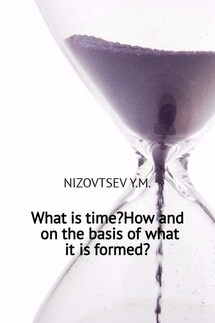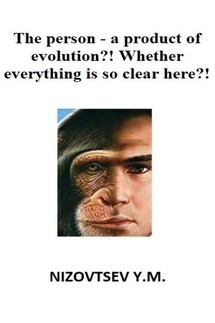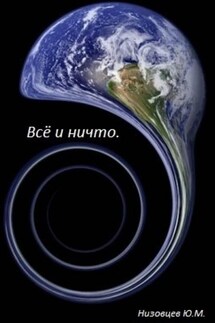Everything and nothingness - страница 12
All it means that thinkers of all ages have underestimated the complexity and ambiguity of the next factor: who we – the people – such in truth, as well as in what we are situated.
However, Parmenides tried to prove that beingness is one thing, that there is no motion in it , there is no origination and destruction: “… it is universal, existing alone, immovable and without end; nor ever was it nor will it be, since it now is, all together, one, and continuous” [14, p. 37-39]. Regarding the world in which we are, then he put it so: “It is necessary to say and to think that What Is is; for it is to be,/ but nothing it is not. These things I bid you ponder./ For I shall begin for you from this first way of inquiry,/ then yet again from that along which mortals who know nothing/ wander two-headed: for haplessness in their/ breasts directs wandering understanding. They are borne along/ deaf and blind at once, bedazzled, undiscriminating hordes,/ who have supposed that it is and is not the same/ and not the same; but the path of all these turns back on itself” [14, p. 37-39]. That is, he believes this world is the seeming world of opinions and senses.
It is necessary to tell that Parmenides's idea about beingness as the uniform, the eternal and the motionless, which seems absurd, actually can explain a lot of things in existence, if to assume that the except eternal, infinite Uniform there is not seeming, but quite the material, real world in time which is united indissolubly with the eternal Uniform in a certain sustainable system, both components which support each other.
To assume this, of course, possible, but it would be desirable to receive the answer to a question: how functions this system.
Beingness, if to see under it everything existing, or existing things, can't be manifested in absence of consciousness in any way. In other words, if the consciousness was not, as such, then and beingness there would not be – there would be nothing. This fact is, apparently, the primary cause of the appearance in human consciousness of the concept of God-creator.
The first of philosophers this ratio between consciousness and things quite distinctly, albeit in his own way, understood Berkeley: “IV. It is indeed an Opinion strangely prevailing amongst Men, hat Houses, Mountains, Rivers, and in a word all sensible Objects have an Existence Natural or Real, distinct from their being perceived by the Understanding. But with how great an Assurance and Acquiescence soever this principle may be entertained in the World; yet whoever shall find in his Heart to call it in Question, may, if I mistake not, perceive it to involve a manifest Contradiction. For what are the forementioned Objects but the things we perceive by Sense, and what do we perceive besides our own Ideas or Sensations; and is it not plainly repugnant that any one of these or any Combination of them should exist unperceived?” [9, p. 13].
In this statement of Berkeley traced the idea that without existence of senses and reason is problematic existence of everything else, inasmuch there are no one and nothing to perceive the rest. However, Berkeley out of this draws the conclusion, characteristic for his time: “XXVI. … there is no corporeal or material Substance: it remains therefore that the Cause of Ideas is an incorporeal active Substance or Spirit” [9, p. 19].









